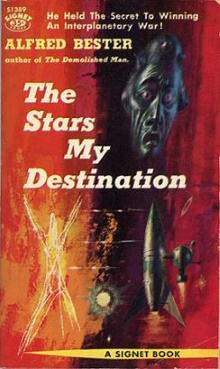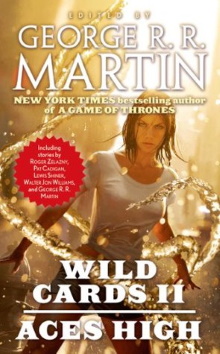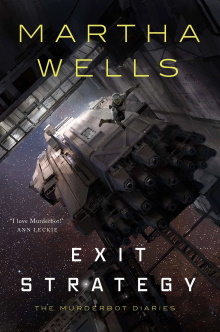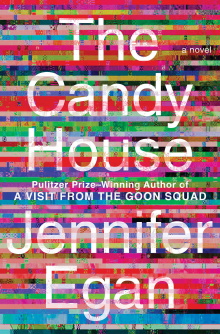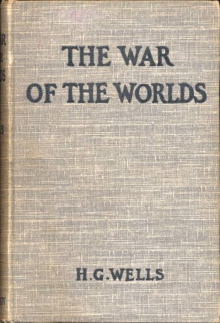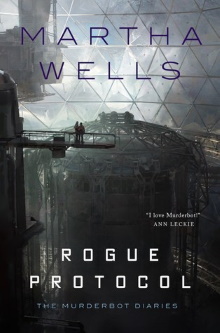Finally, I’m back to working through the list of the great science-fiction novels of all time and this must be one of the weirdest entries on the list. It was originally published in 1956 under the title of Tiger! Tiger!, named after William Blake’s poem. The newer title makes it feel more like science-fiction certainly but the original title really captures its spirit better: an unapologetic paean to the individual superman. As a tour de force of pure imagination the book is marvelous and no wonder it’s considered a classic of the genre. Still I must admit that the deliberately wild ride that is its plot and and the odiousness of its protagonist makes it a difficult novel for me to enjoy.
Continue reading The Stars My DestinationCategory Archives: Books
The Poppy War
R.F. Kuang’s name has been making the rounds lately due to her new novel Babel which critics have been talking up. She’s a Chinese-American writer whose work is new to me and browsing through her published work I was more intrigued by her debut novel. It’s set in a fantasy version of China that is weakened by internal disunity and widespread addiction to opium. It follows the story of a female young orphan who enrolls into the country’s top military and in that sense feels similar to many of the webfiction series around today. Unfortunately while I liked the worldbuilding and the early parts of the novel, to me, it goes off the rails as the action picks up and turned me off completely. I will not be reading the sequels of this trilogy.
Continue reading The Poppy WarWild Cards II: Aces High
I discovered the Wild Cards series back when I was still in high school and of course this was also before George R.R. Martin became a household name. Being also a comic book reader at the time, this series ticked all of the right boxes for me: it had superheroes, it wasn’t afraid of adult themes and featured characters who had to deal with complex psychological issues, and its storylines tied in with real world news and US-based politics. Being a fan of this series made me feel all snobbish about how sophisticated I was. I eventually bought the books up to the seventh volume but I was missing the second book that I was never able to find. I could infer the events in it from what I read in the subsequent volumes yet every once in a while I would still recall that I never managed to read this. Now with the entire series available on Kindle, I thought I’d remedy this little hole in my life.
Continue reading Wild Cards II: Aces HighExit Strategy
As promised, I finishing the final part of what ought to really be the first complete book starring Murderbot. I do believe this may well be my favorite entry of the set of four as there is somewhat less combat in here and instead Murderbot mostly has to deal with infiltrating a large space station while posing as a human and spends a lot of his time agonizing over meeting his original crew again. Finally we get the conversations and emotional closure I’ve been longing for over Murderbot being accepted as a person. This doesn’t redeem the series as a whole in my eyes but it does make bring it to a suitably fitting end.
Continue reading Exit StrategyThe Candy House
This is another mainstream novel that I picked up because it has a somewhat science-fiction premise. It’s even new and was included in The Economist as one of their best books of the year. To me however this is another case of a mainstream book that isn’t really about the technology at its core at all but how its presence and its invention altered the lives of a group of people the novel chooses to follow. It’s also a stylistically clever book in which each chapter is drastically different, including one that is written entirely as text messages between characters. I was impressed by the quality of the writing and the complex psychological profiles of the many weird characters in it, but this was never intended to be science-fiction at all.
Continue reading The Candy HouseThe War of the Worlds
This is a science-fiction book that everyone will have heard of if only because of the vast number of adaptations inspired by it. I similarly have never read the book itself before this, thinking that I already knew all there was to know from the adaptations. Watching a discussion of the top science-fiction novels however made me realize that there still is a lot of value in revisiting the old classics because they are classics for good reasons. As such I’ll be adding some science-fiction classics into my reading rotation beginning with this one by H.G. Wells.
Continue reading The War of the WorldsRogue Protocol
This is the third novella of the series and by now I know what to expect. It largely follows the same formula in having Murderbot unexpectedly run into a group of humans who are hopeless at protecting themselves and ends up saving them. A welcome twist is that most of the opposition here comes in the form of implacably hostile enemy combat bots, which ramps up the threat level to Murderbot considerably. This is still a very simple and straightforward young adult book. It amounts to little more than introducing all of the new characters and then throwing Murderbot right into the action. It’s a rollicking good read, being fast-paced and punctuated by Murderbot’s particular sense of humor, but it’s nothing very sophisticated.
Continue reading Rogue Protocol